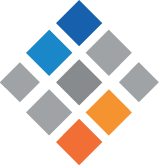
Data Architecture Summit 2017
The Data Architecture Summit provides in-depth education from leading experts specializing in data architecture. We will be there discussing data platform and data governance. Let us know if you you’ll be attending and would like to chat.
Monday, November 13
What are the essential components of a data platform? This tutorial will explain how the various parts of the Hadoop, Spark, and big data ecosystems fit together in production to create a data platform supporting batch, interactive, and real-time analytical workloads.By tracing the flow of data from source to output, we’ll explore the options and considerations for components, including:
- Acquisition from internal and external data sources
- Ingestion: offline and real-time processing
- Storage
- Analytics: batch and interactive
- Providing data services: exposing data to applications
We’ll also give advice on:
- tool selection
- the function of the major Hadoop components and other big data technologies such as Spark and Kafka
- integration with legacy systems
Tuesday, November 14
Data governance today is not the same as it was yesterday. As data and analytics technologies change, they bring new data governance challenges with them. Traditional governance measures that covered Enterprise Data Warehouse (EDW) systems still apply, but roles, best practices, and capabilities are changing. Governance must take modern technologies and data uses into account.To make matters more complicated, the roles and responsibilities related to data governance have also been evolving. Data stewards are now advocates—not gatekeepers—as data sharing has become encouraged across different lines of businesses. More employees are involved in data governance and policy decisions as the number of data-savvy users and data applications increases exponentially. Adapting to these changes is worthwhile—companies are able to reduce costs, enable better decisions, increase operational efficiencies, and enhance collaboration through data sharing.
In this session, we will cover:
- Why traditional EDW-centric data governance methods are no longer the only way to go
- The new value propositions behind modern data governance strategies
- The components of a modern data governance strategy
- The changing role of data stewards and data governance experts (Data governance technology choices in a heterogeneous data ecosystem
- Success stories on how companies have integrated these new governance practices and the corresponding benefits

